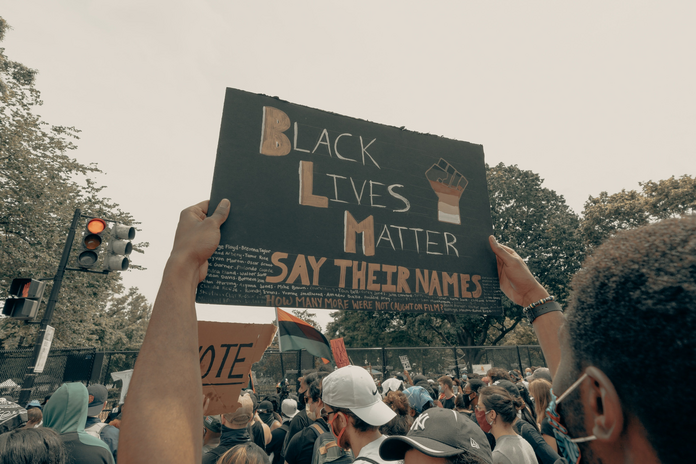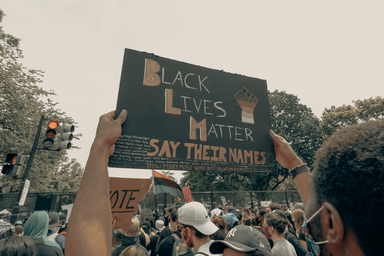The iconic imagery of the University of Wisconsin-Madison is Bascom Hill. It is a straight shot from the Capitol with State Street between the two. Bascom Hall stands tall with six pillars and an American Flag on top. Perched in front of the Hall is President Abraham Lincoln. It is tinged green from age as many students use him for luck and sit atop him during graduation weekend.
Lincoln has been there since 1909, but, recently, students have questioned whether he deserves that place. By having him on our campus, and in such a central, iconic location, and taking photos with him during events and by touching him brings good luck, it glorifies him.
Historically, Lincoln did not believe black and white people were equal and contributed to the unjust execution of 38 Dakota individuals. Should BIPOC students be forced to walk past him every day on campus?
The Controversy of the Lincoln Statue on Campus
This debate is not new. Most recently, in June, The Black Student Union included his removal in their demands for the University. The College Republicans of UW-Madison countered this with a petition to keep him on campus.
This debate is a relatively new one. It began in 2015 when a student organization, “About Race UW,” created a list of demands for the university, which included the removal of the Abraham Lincoln statue. However, this was soon abandoned due to it being seen as extreme. In 2017, the student government requested a plaque be placed by the statue to recognize Lincoln’s position in the Dakota 38.

Lincoln’s Relationship with Indigenous Peoples
The Dakota 38 were 38 Dakota individuals who were hanged by the United States government after the U.S.-Dakota War. Following the war, the 38 Dakota peoples were put on war commission, which charged them with assault, murder and rape. However, this commission was made up of people who had fought in that war, leading to bias within their decisions.
Vincent Schilling reports that “Most of the Dakota did not speak English, did not know they were being tried for crimes and most did not have counsel defending them.”
Because this was a war commission instead of a trial, President Abraham Lincoln had the final ruling. He looked at witness statements, which were from people who were also facing charges and execution. He ended up approving 39 out of 303 for execution, those who participated in civilian massacres. One person’s execution got postponed. Within this horrible execution, at least 2 of those people were the incorrect people.
Another notable event in which Lincoln acted against Indigenous peoples was the Morrill Act. This act granted universities the right to land, taking it from Indigenous peoples. This Act stole the land from the Ho-Chunk peoples, giving UW-Madison the ability to be built. Today, then, the Lincoln statue sitting on Ho-Chunk land commemorates the man who helped steal it.
Lincoln’s Relationship with Black Peoples
Lincoln is praised for his declaration of the Emancipation Proclamation, freeing enslaved people. However, he did not believe that Black people should have the same rights as White people and it would be better if they left the United States.
During the 1858 debates for the Illinois seat in the U.S Senate, Lincoln said, “I will say then that I am not, nor ever been, in favor of bringing about in any way the social and political equality of the white and black races.” Along with him disapproving of equality, he opposed Black peoples’ right to vote, serve on juries, hold offices and to marry White people. Before his death, he did say that Black men who served the Union during the Civil War should be able to vote.
In 1852 and 1854, Lincoln said that to get rid of slavery, the majority of the African-American population should leave the United States and go to Africa or Central America. This continued to be a similar stance within the draft of the Emancipation Proclamation but then was edited out after facing backlash from Black leaders and abolitionists.
On a campus where less than 1% of our student body is Indigenous and 2% are Black, we need to listen to BIPOC opinions. They are forced to be reminded of Lincoln’s past that is glossed over. Their voices are the most valuable. The University is already built upon stolen land; commemorating a man who allowed for this to happen and didn’t believe in equality between races is a slap in the face to the Black and Indigenous students and faculty on our campus.





